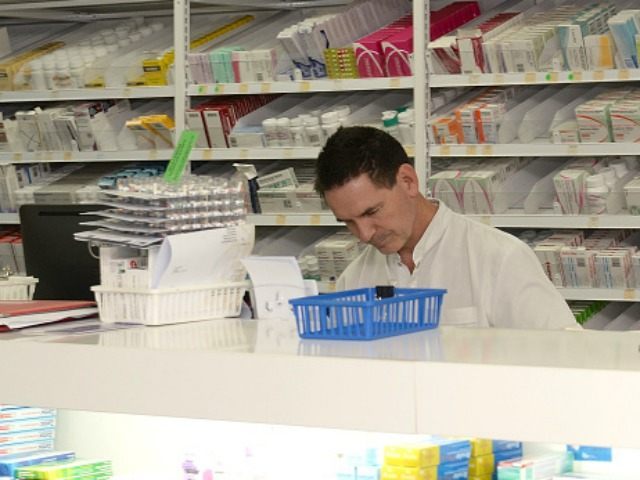While the political news is dominated by the Presidential primary, major drug companies are ramping up their efforts to kill a long-standing program providing discounted prescription drugs to critical care hospitals. Strangely, perhaps, the drug companies are getting a big assist in their effort from HHS.
PhRMA, the trade association for the major drug companies, has been lobbying to curtail or eliminate the 340B program, which provides discounted prescription drugs to hospitals and health care facilities generally serving low-income and rural communities.
The program was created in 1992 as part of an agreement with drug companies, allowing them to participate in the Medicaid Drug Rebate program in exchange for providing similar discounts to certain hosptials and health care systems.
The entire program is modest, equaling only about $7 billion in discounted prescription drugs a year. At only two percent of PhRMA’s total drug sales, the discount program is almost a rounding error in their sales figures. That said, almost 2,000 hospitals participate in the program, providing affordable access to drugs without taxpayer support.
Curiously, though, the Department of Health and Human Services has just reopened for public comment a “notice of rule-making” on the program from last year. In June of last year, HHS proposed some technical changes to the program and asked for public comment on the planned changes.
Reopening a public comment period is very unusual for a proposed Agency rule or regulation. This is especially true for a rule that “closed” almost a year ago. Divining the byzantine operations of a federal agency is risky business. While the specific impetus for reopening the comment period is uncertain, it is coming at a convenient time for those seeking to limit, curtail or even eliminate the program.
On Monday, just days after HHS reopened the comment period, a PhRMA-funded advocacy group released a new study highly critical of hospitals participating in the 340B program. The study, by the Alliance for Integrity and Reform of 340B (AIR340B), concluded that hospitals generally were not complying with all aspects of ObamaCare, the Affordable Care Act.
The study claims to find no difference in the provision of charitable care between hospitals who do participate in the discount drug program and those that don’t.
Interestingly, the last major study published by AIR340B on the discount drug program was in June 2015, when HHS originally proposed its rule-making on the program. It is certainly fortituous that AIR340B was set to publish another, more detailed study of the program just as HHS made the surprise decision to reopen its public comment period.
It was also reported this week that drug company Johnson and Johnson had recently hired lobbying powerhouse BGR Government Affairs to work on the 340B drug program. According to the report, HHS is now considering “mega-guidance” that could make major changes to the program.
PhRMA itself has spent close to $6 million on lobbying in the first quarter. Individual drug companies have collectively spent another several million lobbying in the first three months of the year. While lobbying amounts are not broken down by specific issues, it is likely a considerable amount was spent on the 340B program.
It is important to remember that PhRMA was a major ally of the Obama Administration in winning passage of ObamaCare. The industry spent more than $150 million on advertising supporting the law. It was willing to impose the law on the country, because it struck a deal with Obama to block price-negotiations for government purchases of prescription drugs.
It was a fool’s bargain though, providing, at best, only temporary relief from politicians’ push to mandate lower drug costs. This week, a Senate Committee hauled before it executives from Valeant Pharmacueticals for a hearing on drug pricing. Hillary Clinton, Bernie Sanders and GOP frontrunner Donald Trump have all endorsed some kind of mandated price-negotiations over drug prices.
With so much uncertainty surrounding the drug industry and future government action, it isn’t surprising that it is stepping up its efforts to scrap even a small drug discount program. Even modest discounts worth only $7 billion a year to the multi-billion dollar industry can add up when the overall issue of drug pricing is back in the political limelight.
Lifting the prices of a range of drugs used by thousands of hospitals and care facilties can take the sting out of a general fight on the prices for prescriptions.
With the political press, and much of Congress, distracted by the impending general election, eliminating a small discount drug program may seem an easy lift for the industry’s teams of lobbyists. Of course, that only works if no one is paying attention.

COMMENTS
Please let us know if you're having issues with commenting.